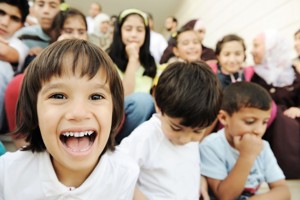Children, war and mental health
May 16 2022

Recent events in Ukraine are horrific to see and difficult to process for both children and adults. Some of us may have friends or family who have been directly caught up in the conflict and, as refugees begin to arrive in the UK, more of us are coming into contact with Ukrainian families. Some of those will be incredibly traumatised and it is well recognised that the experience of conflict leads to risks for the mental health of children and young people.
It may be on a different level, but many children (as well as adults) in this country feel overwhelmed by what they see and read, and experience heightened anxiety.
As adults, how we interact with the news and with social media, can influence our children. The term ‘doomscrolling’ was used a lot at the start of the pandemic, when people were spending an excessive amount of screen time absorbing negative news. Particularly for those already experiencing anxiety, this often only worsened the feeling. Now in the midst of the Ukraine conflict, doomscrolling is again part of many people’s lives.

We are hardwired to look at situations that are threatening in order to assess them, and news headlines that are frightening or exciting are designed to attract people to read the news story. However, some people feel compelled to keep looking at them, with the effect of increasing their fear. Anxiety in response to a threat is entirely rational; however, intervention is needed when it becomes disabling.
As a parent or carer, it’s important to get the balance right between exposing and protecting your child from the news.
Clearly it also depends upon the age of your child, but some key points are:
- First, manage your own reaction to the news. It’s okay to feel anxious and to acknowledge how awful the situation is.
- Listen to your child and validate their feelings.
- Ask your child what they have heard about the conflict. Ensure they have enough information, and from reliable sources – they are likely to feel excluded from their peers if don’t know what’s going on.
- Keep them away from graphic images and repetitive media coverage.
- Model appropriate behaviour by limiting screen time yourself and find more positive things to do with your child, such as going for a walk.
- Discuss ways as a family you can gain some control, for example by fundraising or donating.
Some children in the UK have been welcoming Ukrainian refugee children into their school.
Of course, refugee children are not a new phenomenon; they have been joining local communities for decades. When they first arrive, they face all the problems that socially marginalised populations suffer but, in addition, have faced emotional and physical trauma, forced migration and, for some, the loss of their primary caregiver.
When a child has been exposed to trauma, typical responses include being clingy, tearful, inattentive, tired, avoidant and physical aches and complaints. However, these responses subside in most children within a few weeks and the majority will have positive outcomes with the right support. Starting in a new school and unable to speak the language can be daunting but, typically, refugee children go on to thrive with appropriate support. Schools play a key role in the child’s wellbeing, providing a natural point of contact and a focus for learning English.
A sense of belonging is essential; a sense of relatedness and close, reciprocal, supportive bonds of belonging to people, places and communities. Schools can do a lot to facilitate this – but it’s important that the children are given opportunities to interact in a natural way to build authentic relationships.
Many children in the UK will want to respond to the Ukraine crisis in active ways - and where better than in their local school?
They could be encouraged to think about how they can create a welcoming environment for refugees in their classroom or school – for example designing multilingual signs or welcome posters or learning to say hello in different languages. It also gives schools the opportunity to talk about migration and why diversity is a strength, encouraging them to think about how they would like to be treated if the roles were reversed.
Related
Popular
Upcoming event

Join us for the Bath Half Marathon to support young people and their mental health!

The Charlie Waller Trust
The Charlie Waller Trust is a registered charity in England and Wales 1109984. A company limited by guarantee. Registered company in England and Wales 5447902. Registered address: The Charlie Waller Trust, First Floor, 23 Kingfisher Court, Newbury, Berkshire, RG14 5SJ.
Copyright © 2025 The Charlie Waller Trust. All rights reserved.






